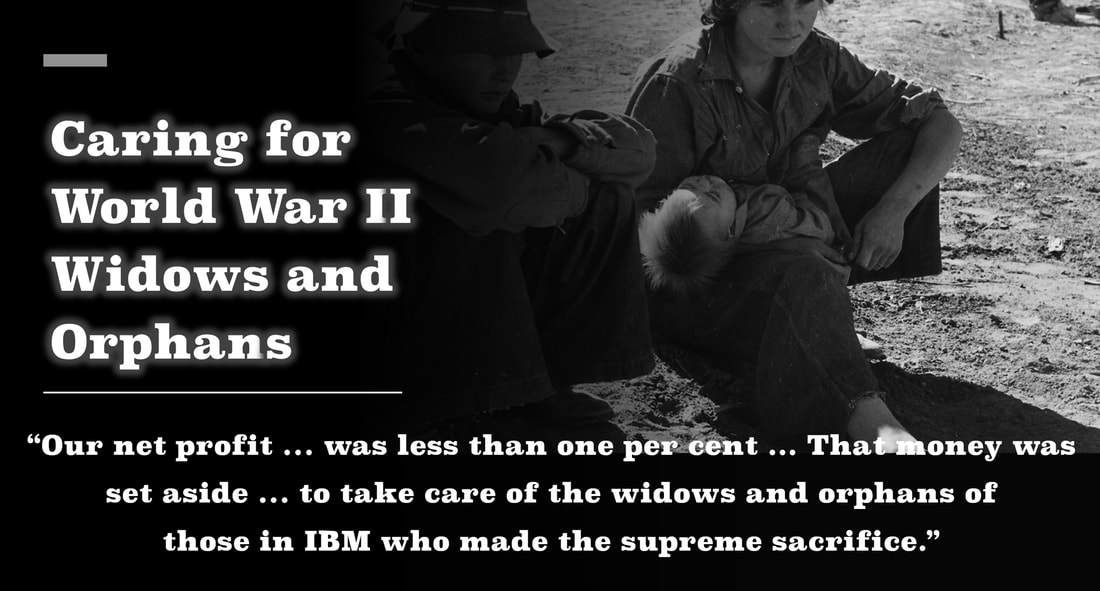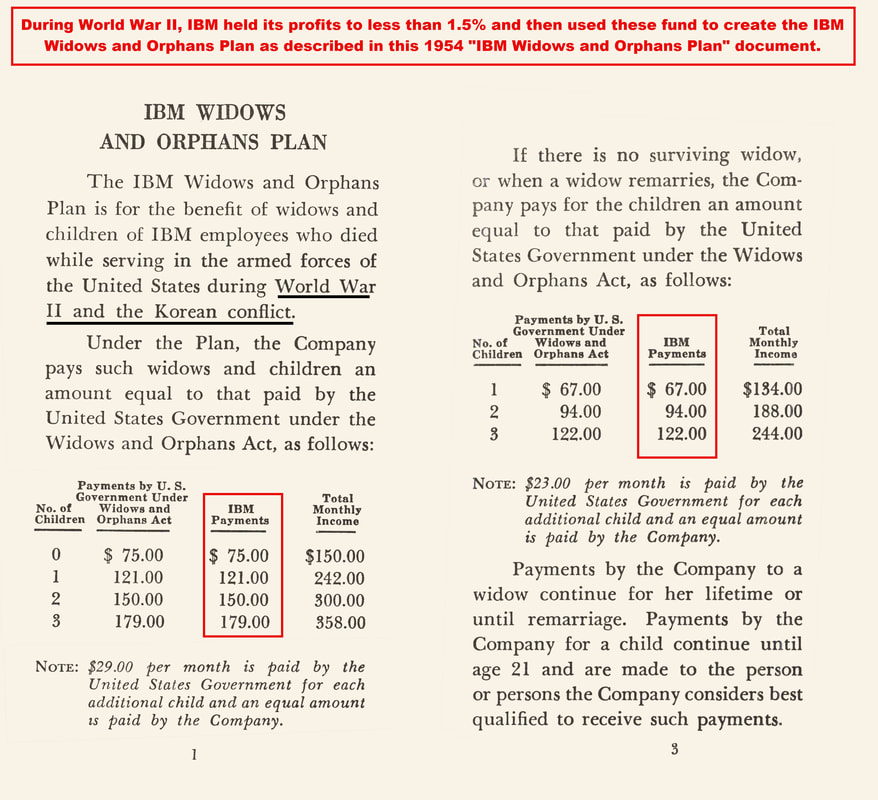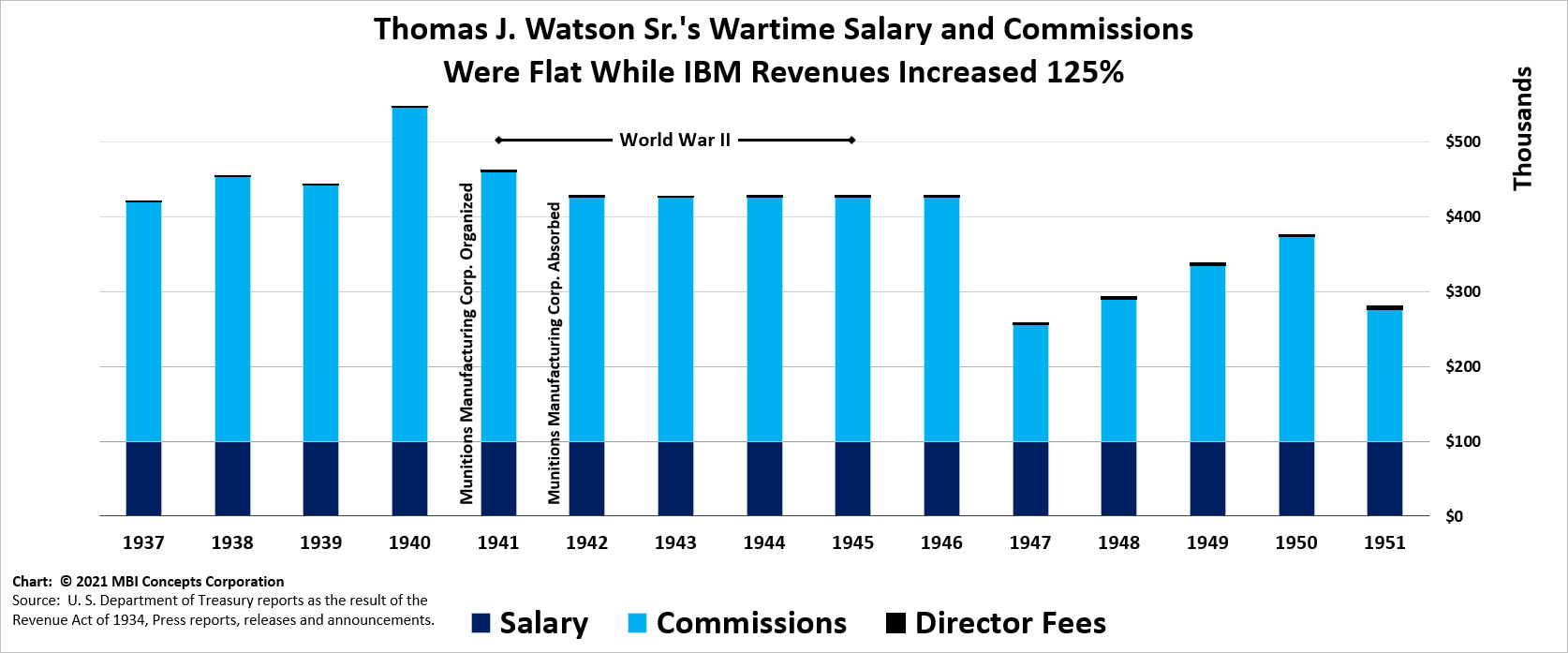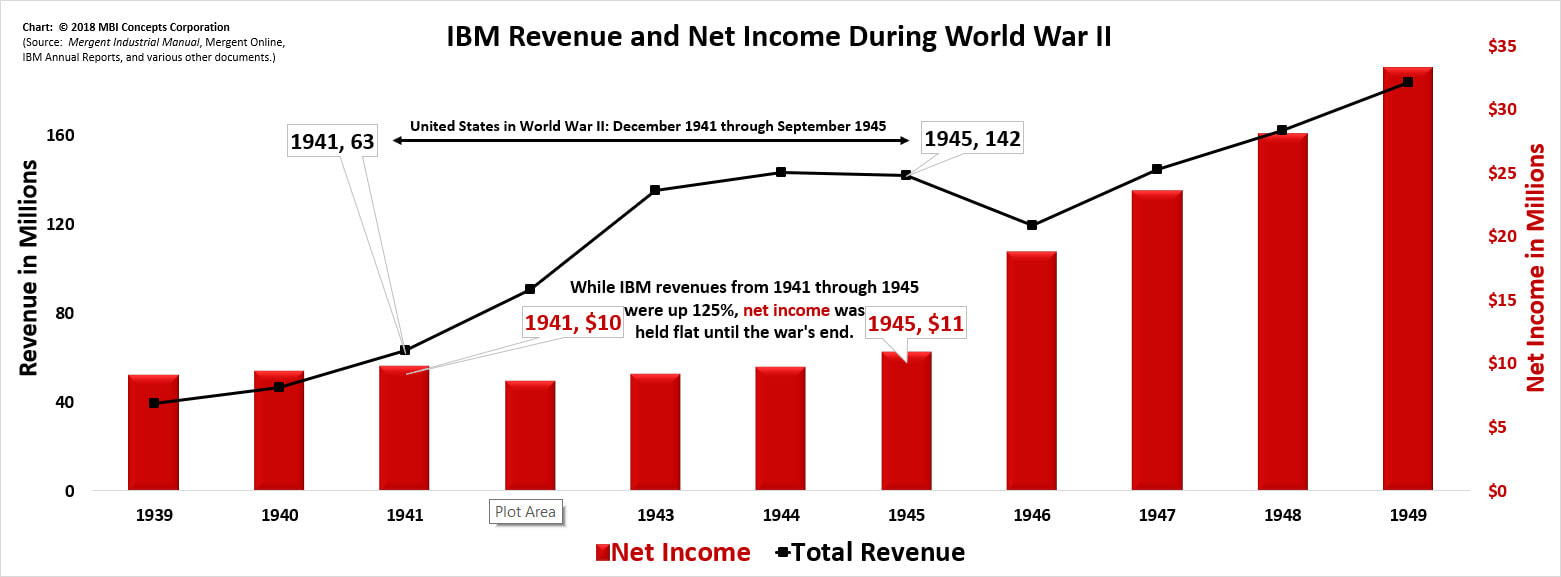Supporting World War II Widows and Orphans
Caring for World War II Widows and Orphans
|
Tom Watson Sr. voluntarily relinquished any possible commissions or personal profit from World War II munition's contracts by insisting on a retroactive agreement that set his maximum share of company income to a 1939 level—a time prior to the start of World War II when IBM was receiving no revenue from government munitions. From 1939 through 1945 this amounted to $1,365,582. (This amount is under research ... I believe it was much higher than this but will be accessing the National Archives to verify.)
He also insisted that IBM's profits from any munitions contracts be limited to one and one-half per cent. These "profits" were dedicated to assisting the widows and orphans of IBM's war-time veterans. The document provided as a sidebar documents that IBM matched the U.S. Government's funding for widows and orphans dollar-for-dollar during and after both World War II and the Korean War. |
This wartime corporate policy of Thomas J. Watson Sr.'s was highlighted in the certificate that was read along with the presentation of the Medal for Merit by Secretary of War Robert P. Patterson by President Harry S. Truman in Washington, D. C., on May 19, 1947.
Thomas J. Watson Sr. flattened his salary during World War II.
The purpose of the two following charts is to document that while corporate revenues increased during World War II by 125%, Thomas J. Watson Sr. held both his salary and commissions, and the corporation's profits flat. An audit after the World War II documented that the actual profit during wartime was less than 1 percent.
Thomas J. Watson Sr. also "flattened the profits" of his corporation during World War II.



